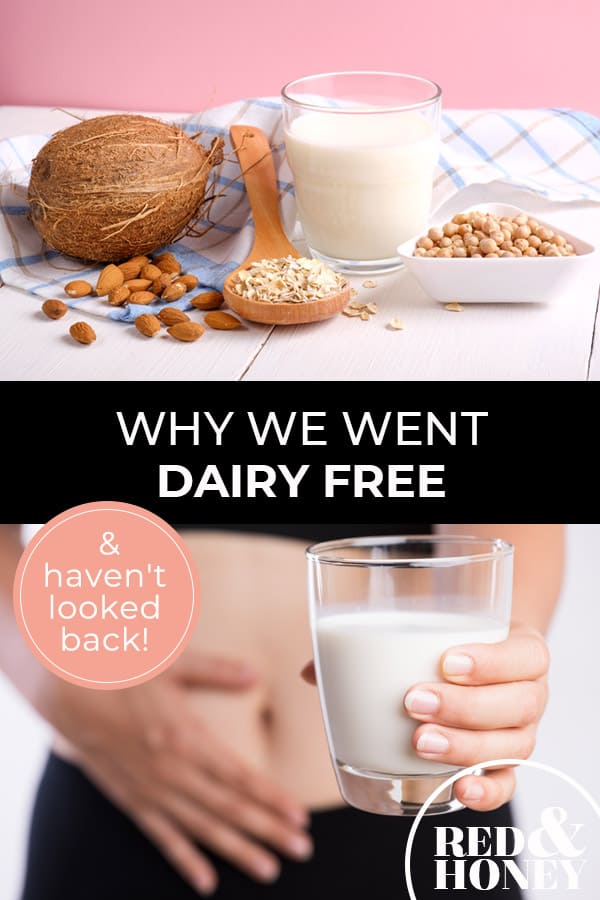
By Molly Kehrer of mollymadonna.com
When we brought our youngest home from the hospital two years ago, she was sleepy and quiet and dreamy. She rested well in my lap or on my chest, but it became obvious within a few weeks that this was really the only way she’d sleep peacefully.
By the time Eloise was about three weeks old, we had settled into a challenging evening routine–we’d have just put our oldest to bed when our littlest would ramp up, crying to nurse almost every hour from eight or so on.
If I tried to lay her down before one or two in the morning, she would wake up screaming full tilt, and we’d start the sometimes hours-long calming process all over again.
I remember asking my husband to take her for “just a minute,” to run and change laundry or to grab a glass of water. No matter how well he rocked her, paced with her, shushed her, sang to her…she just screamed. This became our norm–and a maddening one. I never felt released to be anywhere but on the couch with her, and my husband never felt like he could help in a tangible way.
We were exhausted.
Night after night we’d settle our eldest in, take a very deep breath, and head into five or six hours of nursing, crying, shifting, burping, and essentially trouble-shooting our baby.
At a doctor’s appointment, I asked about allergies or reactions to something in her environment, and our doctor suggested reflux. I wasn’t keen on pumping Eloise full of medicine that we weren’t sure was the ticket, but after a few more weeks with no relief or change, I thought it was worth a try. The long and often sleepless nights were getting to all of us, and I didn’t want Eloise to be struggling if we could help her.
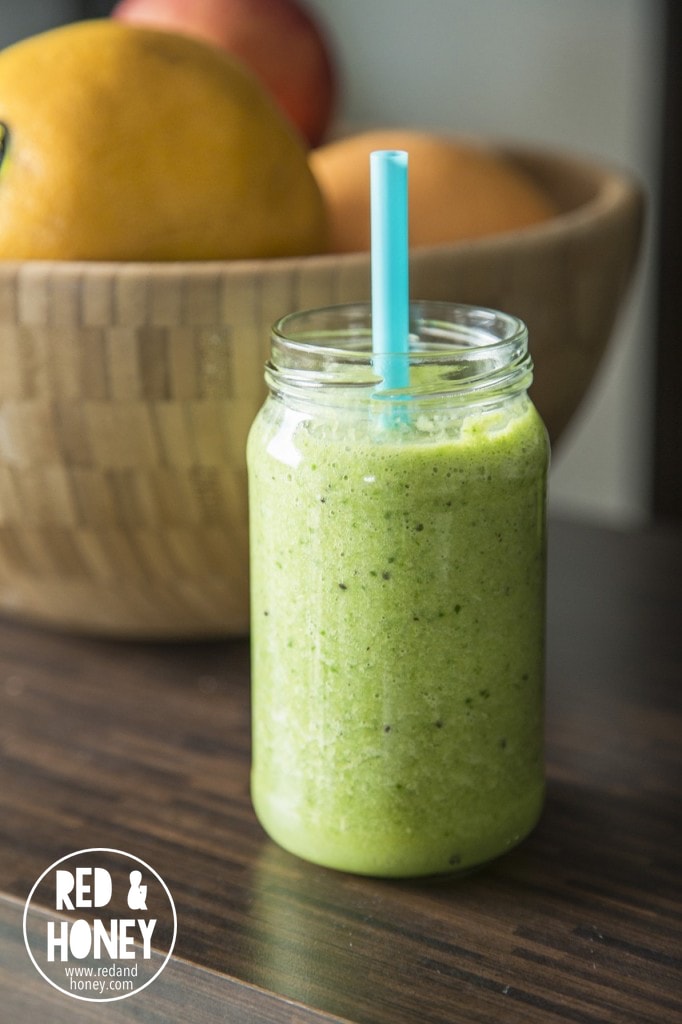
We gave her several weeks of reflux medication, eventually tried a second, stronger medicine, and after a few more weeks without noticeable change, stopped the meds altogether.
It had been five, wearing months, and it was pretty obvious to me that our baby girl was still no less miserable. We’d tried all of the obvious things…position changes, gas drops, gripe water, rocking, bouncing, swaying, walking. We’d played music, talked with her, poured over sleep books, asked friends, prayed like crazy. I’m sure there was more, but those months were such a blur to all of us!
I wanted so badly to be this energetic, upbeat mama, but I was struggling just to stay awake. Our oldest was as patient as a two year old can be, and yet, the season had taken too much of a toll.
I was desperate for an answer.
It occurred to me that I’d had very adverse reactions to dairy and eggs while pregnant with Eloise, and the thought wouldn’t leave me alone, so we went back to the doctor to ask about possible allergies again. He suggested that an allergy at Eloise’s age would likely only be eggs or dairy (lightbulb!), and I asked how to proceed.
I could have guessed at the answer, but I’m not sure I wanted to hear it: I needed to stop consuming any and all dairy to see if it would make a difference. As Eloise was still only nursing at this point, it was really up to me to make the change and see what happened.
I left the office that day with a mama’s resolve, and I didn’t touch even a trace of dairy for the next week.
Almost exactly a week into my dairy hiatus, Eloise started to shift in the evenings. I noticed that I could put her down a little earlier at night without any repercussion. She seemed sleepy at nights, and much less fussy. We gave it another week.
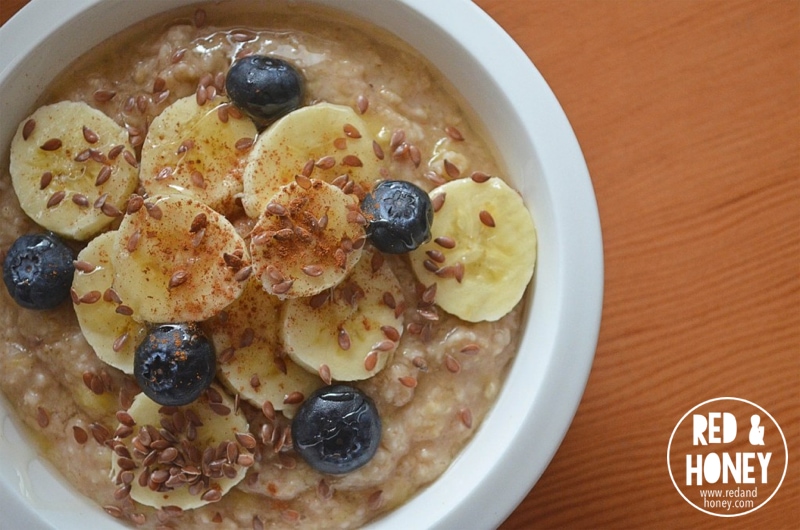
Two weeks into my dairy free adventure, Eloise was a new baby.
She was happy during the day and ready to go to bed at night. She didn’t look at us like she was in pain, and I stopped feeling so helpless. It was empowering to think I could help her to be well, and as an added bonus, I started feeling better, too.
It took us about two months to recover from our sleepless nights, but between getting more rest and eliminating dairy in our diets, we were feeling pretty great by the time Eloise was ready for table food. She started out with avocados, mashed bananas, and any whole food I could puree. And she was happy as a clam.
Our nursing and snuggling relationship became more and more positive and far less exhausting. I noticed major changes in my energy level and in the way I felt after meals. I decided to implement the change for our oldest, too.
Once I removed dairy from our son’s diet, I was able to recognize new patterns in him as well. Occasionally he’d have a piece of string cheese or little bit of yogurt. Before long, I realized that his behavior was different after there’d been any dairy in his day.
If Henry avoided dairy, his listening and obedience was delightful. He was attentive, agreeable, calm. But if I caved and said yes to a dairy-laden treat, our super sweet eldest became more irritable, erratic and distracted. His reaction wasn’t over the top, but it was noticeably different from the norm. And then after awhile, he started to self-censor. We met up for dinner one night with friends and we gave Henry a piece of pizza. Within half an hour, his stomach was upset and he asked to go home.
In school, he settled into the idea of bringing a snack from home on days that dairy was being served. If we said yes to another cheese stick or to cheese on a sandwich, we all felt the impact later.
Nowadays, Henry decides every once in a while that he’d like to have something containing dairy, but he often says no to pizza and other treats that most four year olds would grab in a hot minute. I think he’s just learning his body and knows what makes him feel good and bad. I’m so thankful.
I nursed Eloise until I needed to be away from her for five days (she would never take a bottle, so pumping was, sadly, of out of the question). I was sad to end what had become a very healthy, healing nursing relationship with her. She was fourteen months old.
The upside (or so I thought) was that I could add dairy back into my life now that Eloise wasn’t dependent on me for milk. Within a day or two of indulging, I could tell that my dairy-consuming days were officially over.
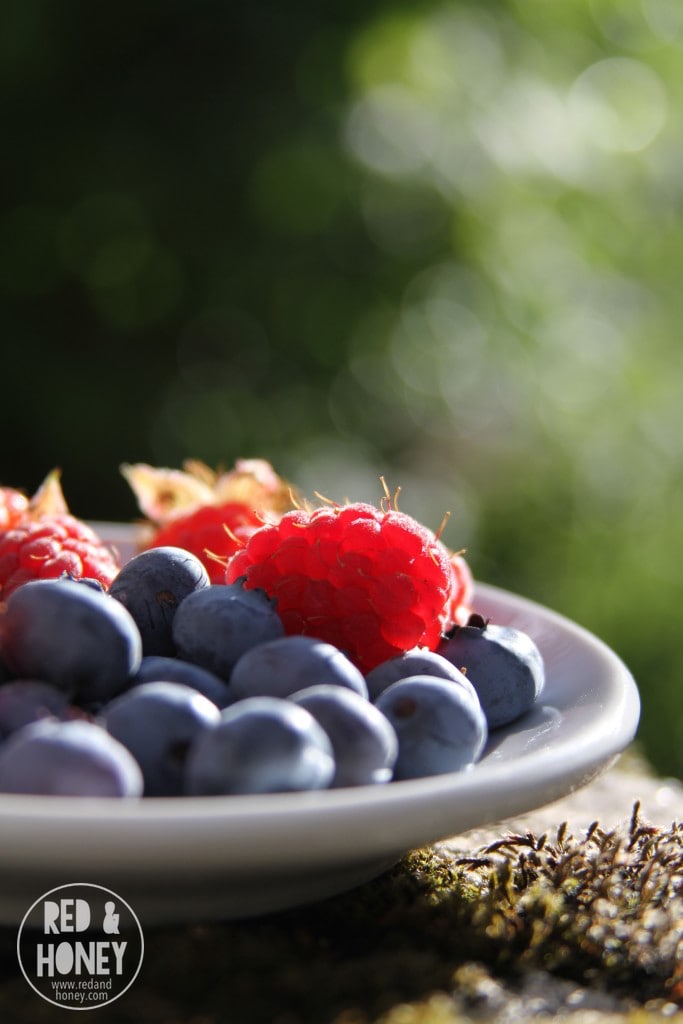
I started to get terrible headaches (much like I’d had when I consumed dairy during pregnancy), and my digestive system was completely out of whack. I decided then and there that I’d eat in solidarity with Eloise, and that she and I would be on our dairy free adventure together for as long as it felt healthy and viable to do so.
Henry joins us on most days, with the occasional (and sometimes regretful) dairy treat, and dad can still consume dairy without much trouble. Still, for meals around the table we are a dairy free family, because that’s what works best for the majority and we never want to leave Eloise out of the mix when we’re sitting down to a meal together.
We know from our individual responses that dairy isn’t an allergy in our family, but definitely an intolerance that we share to varying degrees. People often ask whether we’ve had Eloise tested for allergies, but we’ve decided not to put her through the paces of testing at her age unless it becomes completely necessary.
We know from (accidental) trial and error that she still gets an upset stomach when dairy crosses her path, and I’m happy to continue exploring dairy free recipes and menus that serve our whole family well at this stage of our lives.
Sometimes life without dairy feels inconvenient (read: all summer long when ice cream sounds good to everyone ;), but largely, the benefits of feeling well far outweigh the occasional inconvenience of avoiding dairy items in restaurants or at the grocery store. We have grown to enjoy almond milk, dairy free yogurt, coconut oil, and cashew milk for cooking. I love using nutritional yeast on top of things like taco salad, or in other dishes where I’m still craving a cheesy flavor, and I’ve found amazing recipes in vegan cookbooks that we’ve all grown to love.
Really, becoming dairy free has shifted from a challenging adventure to a way of life for us. I take great joy in nourishing our family with whole foods, have grown comfortable in a dairy free kitchen, and now realize that life without ice cream and milk and cheese means I feel cleaner, healthier and more energized than before.
As for our little lady, she has never known what she’s “missing” where dairy is concerned, but she is happy and healthy, and has a voracious appetite. She is growing well and enjoying so many of the good things in life as a toddler: fruits, vegetables, smoothies, clean proteins, fresh fruit popsicles, guacamole, trail mix and so, so much more.
Being dairy free is one of the best shifts we’ve implemented as a family. I don’t know whether it will last for a few more years, or for a lifetime. I do know that it’s both comforting and empowering to watch our kiddos make nutritional choices for themselves at an early age, and to see that–at least for now, we’re all thriving on the foods that serve our bodies best.
If you have questions about making the dairy free shift, I’d love to hear from you! Comment below or send a message my way at [email protected]. I’ll never claim to be an expert, but I’ve learned a lot along the way 🙂 Let’s journey together!

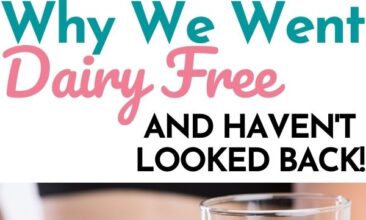
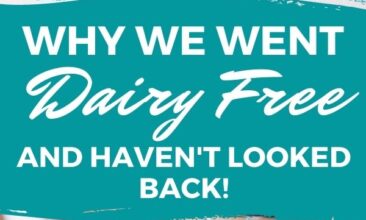
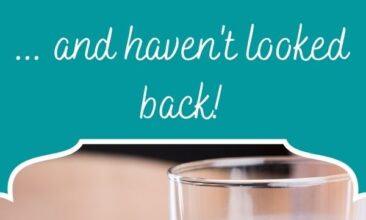

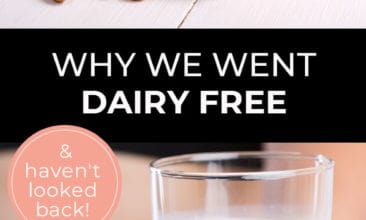
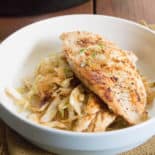

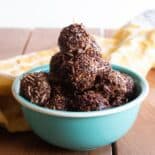




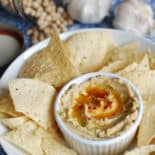

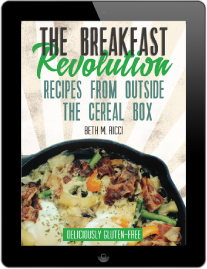

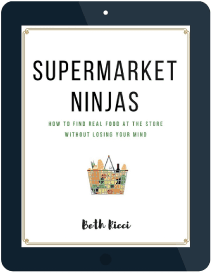
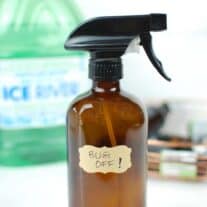






Andrea
Oh my. I could have written this first half of your article! My daughter did the same this you described for five awful weeks, not months. Thankfully my midwife caught it and I went through the dreaded dairy elimination process. Not even BUTTER or Ghee for 9 months when I slowly started adding it back in. Bonus, although I ate a lot, I lost a lot of weight which I gained back when I let dairy back in, and our milk is raw! In retrospect, it was far easier to do for her as a baby than for me as an adult and for our three kids whose favorite dishes are smothered in cheese. I’d like to do another dairy elimination diet for all of us, but it’s very, very hard for me. I’d rather eat cheese than chocolate. And I’m not a slave all day in the kitchen kind of mom. I’d rather get in and out and move on, but you’ve made me think. Thanks!
Julie
Reading your story made my heart break for your struggle and that of your little ones; I’m so glad you found what was causing the trouble and that you were able to work with it.
Not quite two years ago I “discovered” the hard way I was severely allergic to all dairy (EpiPen, first ambulance ride, the whole nine-yards). I had to eliminate it overnight & that was a HUGE struggle, especially mentally – I was a cheese girl. Good things have come out of it; I’ve learned a lot about nutrition & continue to learn; I’ve found some great substitutions (and several that are not good); in March after several months of research on non-dairy living I started my blog. There were oodles of gluten-free and nut-free websites and blogs but very little that completely addressed dairy free, thus http://www.nondairyqueenofsweets.wordpress.com was born. Up to now, I’ve mostly shared recipes that I’ve created or revised; I’m working on adding in additional features in 2016.
And one last thing – I don’t recommend going dairy free overnight – it’s rough!! 🙂
Molly
Hi Julie! Thanks much for your thoughts! And you’re so right–going dairy free overnight IS rough 😉
Looking forward to perusing your blog. DF recipes are grand! Blessings…
Lindsay
The sad thing is that dairy in and of itself may not in every case be what’s causing the sensitivity. Like with so many things these days…wheat (gluten), corn, peanut butter, etc…the problem has more to do with the way we handle/process it and the way we expose ourselves to it. A lot of people who can’t tolerate dairy from the grocery store, can enjoy it without any issue straight from the local dairy, whole and unprocessed. This has to do with the fact that milk in its “straight from the utter” form, has components like necessary enzymes that aid in it’s digestion and absorption. Cows milk (just like human breast milk) is an amazing food full of nutrients and healthy, living microorganisms that promote good health. We just kill all the good stuff by homogenizing and pasteurizing. Many have connected the genetic modification of seeds like wheat, corn, and others to be contributing factors, along with the plethora of insidious chemicals sprayed on the growing plants, with the tremendous rise in sensitivities and allergies to those foods as well! It’s getting so we have to grow/raise/produce all our own foods just to be able to eat anything anymore! I’m so glad you shared this article, I hope it helps many who are struggling with this same type of thing find the answers they need. I also hope those who’ve read it might consider that it might not be the dairy itself, but the way we modify it, that is causing the problem 🙂
Heather
My youngest was a tough baby, very similar to your situation. She nursed constantly, couldn’t sleep through the night until she was almost 3, but took 3 hour naps, and didn’t like solid foods until she was 18 months. It was tough and frustrating. At one she was given chocolate chip pancakes and broke out in hives. I tested it a few weeks later to see if that was what did it and sure enough hives again. I did a little research on chocolate allergy and there really isn’t any. Chocolate reaction is usually tied to dairy. Well I didn’t see any milk allergy symptoms, so we just kept her away from chocolate.
Fast forward and year and a half. She was having stomach pains and pooping several times a day. Friends of mine suggested eliminating dairy for a month to see. Well more research into dairy allergies and she has a long list of symptoms that fit the allergy. She has been dairy free for 1 1/2 years. Not always easy but worth it if she is going to feel better.
Molly
Thanks, Lindsay! So true, and I appreciate your insights here 🙂 I would love to try raw milk for Eloise to see how she does. So far where we live, the only source I’ve uncovered would require us to own a portion of a cow. I’m completely open to this option for the future, but I’d really like to try it out on a few of us here at home first. I need to get more creative and find a way, definitely!
Bethany Lotulelei
Thanks for sharing your story! This is incredibly empowering. My fella is Lactose Intolerant, but sometimes he still will eat dairy (and deal with the consequences later). This post has made me wonder if we should both trying being dairy free for awhile, and see how it goes. Do you have any suggestions for dairy replacements?
Lola
Yep. I’m having my fifth baby and with my previous four, dairy has made them miserable and immediately eliminating dairy has made newborn parenting easy. Even one cheat leads to a restless night with angry grunts and cries and knees pulling up in my babies. It’s worth it to cut out dairy. The sad thing is we have a jersey cow who is exclusively grass and hay fed 🙂 They’ve all outgrown their intolerance (mostly by diversifying their gut flora on our farm in my opinion) by the time they are six or seven but it’s not a constant part of our diet. I think it’s good for people to know that newborn parenting isn’t supposed to be an exhausting, horrifying experience. Babies are not meant to be miserable all the time. Sometimes we aren’t sure what the cause is but in my case, it was an obvious fix that was worth the hassle.
Beth
So good that you mention this, Lola. In hindsight, I’m certain that if I had cut out dairy when Canaan was a newborn (and probably the other two as well) that he would have been a much different baby. The constant projectile spitup should have been my first clue, but I never had the self-control to give up dairy fully when I was already so exhausted and overwhelmed. Looking back, I totally wish I had just done it anyway. Hope you’re feeling well in these last days! xo
LIsa @ This Pilgrim Life
So great to be able to figure out what was causing your daughter issues as a baby and to be able to make such a significant difference just by cutting out dairy. I love reading success stories like these. Personally, I can’t imagine cutting out dairy, but I know it’s beneficial for a lot of families.
MamaV
Dairy hasn’t seemed to be a big issue for my family, but cutting out gluten made a big difference. My mother-in-law bought my 2 year old a hot dog the other day and I was very pleased to hear that he threw away the bun. 🙂
Even when he was exclusively nursing just a little bit of gluten in my diet would constipated him like crazy.
Also I’m curious; does butter work for your family or do you use other fats?
Molly
It’s amazing to watch our kiddos make choices they know are right for their bodies, isn’t it? So great! Butter is ok for all but Eloise, but we have switched to using organic vegan options from Earth’s Balance and/or Melt, as well as coconut oil for spreading on toast and when cooking. The switch was just easier to make family-wide 🙂
Joli
Look into making your own ghee- a traditional, super healthy source of fats, which all but the very most sensitive to dairy should tolerate just fine. Also, if you want to actually heal the root cause of the dairy intolerances in your self and your children (as opposed to simply eliminating this food group), look into the GAPS protocol to heal the leaky gut that is at the source of these issues.
sassygirl
great post! happy to hear that E.
is doing much better dairy-free.
i am as well 🙂 and very glad to
have made the change permanent
in my lifestyle.
bon appetit!
Molly
Thanks for commenting! It’s so great to feel free from food troubles once we crack the code on the cause…love that you are feeling the benefits as well! Blessings!
Anjanette
I appreciate reading the progression of your story. My daughter is much the same, with frequent tummy troubles off and on for all 5 years of her life. We HAVE had her tested for allergies (skin test), and she didn’t react to anything. She has acid reflux and non-allergenic chronic rhinitis. She’s also our emotional/disgruntled one. I’m pretty sure dairy bothers me, but I haven’t seen noticeable changes when she’s avoided. We are about to try again, though, as we’ve been through a season of indulging and her symptoms are worse. We have found some relief increasing her magnesium and calcium supplements (lotion and a powder drink), and keeping up with probiotics. I hope she grows out of it and a varied diet will be enough as she gets older, but it’s nice to have the knowledge that there’s a whole tribe of others living with these issues, too. Thanks for sharing.
Molly
I so appreciate your comment and the journey you’re on with your daughter, too. I’ll have to look into the magnesium supplements–interesting! It can be so tricky to create a balanced/varied diet with food issues, can’t it? Love that we know at least that all fruits and veggies are fair game, and that we can eat a rainbow any day for good health 🙂 There is indeed a tribe…always feels good to know we’re not alone. Thanks for being here!
stef b
But this doesn’t say why dairy is bad. Is it just that they had allergies? I wouldn’t write a post telling people to avoid cantaloupe because I’m allergic to it. ALL dairy? Raw milk? Fermented dairy?
ClaudeA
Perfect reasoning, stef b! In fact I’m here just because I want to remind readers that attempting to destroy other’s trust in standby good nutrition just because our experience is different is a terrible deception. At my 70 years there’s been so many stupid fads in every imaginable part of living it is pure nonsense to go with anything other’s claim.
However, it is great service for people to offer facts about changes they made to gain better life, and why, and the long term results.
For instance here, my mother could not nurse us 6 kids when we came along, so she used cows’ milk. That was fine for her first three, but our sister had extreme reactions and her parents came to the rescue with a loaned dairy goat from their herd. Our sis is alive today because mother, an avid M.D. avoider who lived to 93 without their toxic spue of synthetic snake oil meds, was into natural health via natural nutrition.
I do hope the lady who pens this diatribe sees the natural nutrition way and renounces all M.D.s. They are all trained by med institutions built and funded and staffed by BIG Pharma, and BIG Pharma has not iota of conscience about keeping its victims healthy – it doesn’t make a penny profit from sharing honest health that never costs more than good food from high nutrient soil.
Beth
The post was not telling everyone to avoid dairy, it was sharing the author’s personal experience.
Molly
Hi. Thanks for reading. As Beth replied, I was sharing our story and what we’ve found to be most beneficial for our family at this stage. Our way of doing things might work well for some and not for others, but hopefully someone who has struggled with similar issues to ours will find benefit in reading. I’d love for another mama not to wonder for five months how to help her aching baby if dairy happens to be the issue (and if eliminating dairy for a time might be the simple fix). I so wish I’d known more, sooner, for our baby girl. She was miserable. I know lots of children who seem to tolerate dairy well, but mine don’t happen to fall into that category for now.